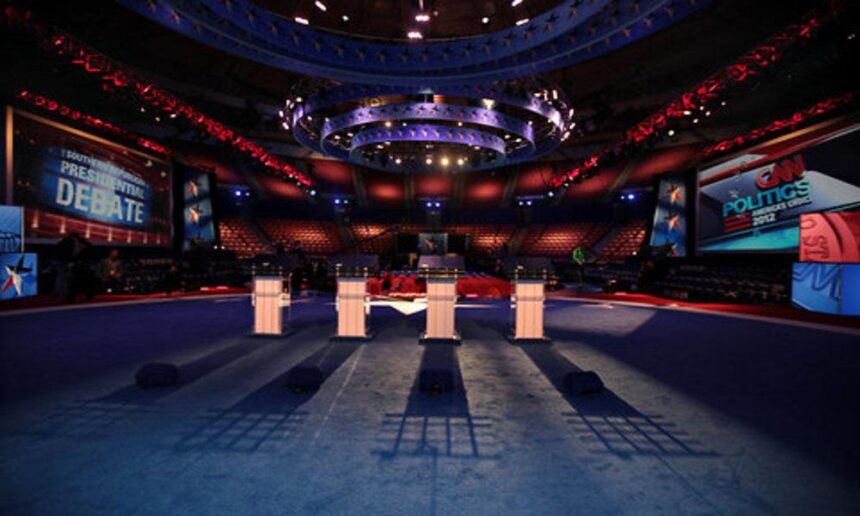Mongolia’s presidential election is taking place very soon. Having decided that MPRP leader N.Enkhbayar does not meet the legal requirements, the authorities registered former MP S.Ganbaatar as MPRP’s presidential candidate. This development has finalized the names of three presidential candidates from the three political parties who have seats in the parliament. The nominees are now ready to compete in the presidential race happening on June 6-24.
In a democracy, people cast their vote only after they obtain a good understanding of each candidate and what they stand for. A very effective tool that gives people an opportunity to weigh up the candidates is a debate broadcasted on TV. However, such culture of organizing debates has not embedded well in Mongolia. The debate also offers a great opportunity for candidates to express themselves and tell their story to the public and reach many people in short time. Mongolia’s first debate broadcasted live on TV was in 1993, just before votes were cast for our first presidential election between L.Tudev and P.Ochirbat. The last debate took place in 2013, when Ts.Elbegdorj, N.Udval, and B.Bat-Erdene were candidates. But, almost each of the past debates took the form of a pre-planned Q&A session rather than a real debate.
As the people of Mongolia, we want to know more about what our future president stands for and what kind of a person he is, before the election, and not afterwards.
Debate – a mandatory event for our time
In my previous column, I reflected on the fact that the people today do not know how well our presidential candidates understand the principles of capitalism, how they would yield their power to promote free competition and let the market regulate itself, and if they have the capability and desire to do so.
Mongolian political campaigns have been focusing more on self-promotion and making others look bad, instead of talking about plans and programs. This is causing people to become divided, moving them away from important discussions around political and socio-economic issues.
When debates reveal what leadership qualities the candidates possess, who their family members and relatives are, and what approach and attitude they take on various issues, the debates can really influence the opinion of voters. A 2012 report from the Pew Research Center suggests that the live televised debates influence the two thirds of the voters significantly or to some degree, which proves to be more effective compared to other communication methods.
An election campaign does not really target supporters, but focuses on the ‘floaters’ – people who have not made up their opinion. It has been concluded by scholars (Holbrook, Hall, Gottfried) that live debates play an important role in delivering information critical for voters to make an informed decision about the candidates.
During debates, new or emerging issues often surface and stay under public discussion even after the election. It was also concluded by a study (McKinney Rill, 2009) that debates help the younger people obtain a better understanding of democracy and how it works.
A TV debate broadcasted live throughout the country would also be cost effective. The maximum amount of campaign expenditure for one candidate has been set as 6.8 billion MNT from the political party, and 3.9 billion MNT from oneself. Instead of spending large sums to visit all aimags and soums, a televised debate offers a much cheaper option that would cover more people.
Format and content of debate
Another cause for the governance crisis in Mongolia today is the growing power granted to the president. The Constitution grants the president over ten different privileges, which can be divided into three categories: foreign relations, security, and ensuring independency and balance in governance. Therefore, the TV debate should be organized for each of these categories as a theme.
We need to have the candidates talk about their proposed policies on economy, society, and foreign relations, let them elaborate on their long term vision, and ask questions in relation to their past actions and quotes. There needs to be discussions around what the candidates think of our current political and economic institutions and how and what they intend to change. In order to stop and prevent from the deep-seated corruption in the government, we need to pose well-researched questions on political party financing and campaign funding of each candidate.
How ready the president is going to be on the first day of his office and what outcomes he will deliver are largely depending on whether the candidates have developed or publicized their policies on the abovementioned categories and if they have their team ready to work with. There is no time to prepare for these things after you get elected.
The debate must not allow the questions to be disclosed beforehand, and has to have specific questions rather than general ones. Opinions of the candidate on some topics have to be further clarified, and every nominee must be given an opportunity to express his opposing views and give rebuttals.
The moderator is critical to organizing such debates. The only role of moderators in the previous debate was to ask questions, which made the whole affair boring, slow, and uninteresting. Every candidate has to be treated equal, starting from the seating position to opportunities to speak.
If the debate has the right format, asks the right questions, and makes people think, it will help everyone make a more informed decision when voting.
It is clear from the traditional and social media that Mongolians have high expectations for the presidential election debate this year, having recently seen extremely interesting, competitive, multi-phased debates of elections in the United States, France, and South Korea.
It is unimaginable to think that the head of our state and the leader of Mongolian democracy would be unable to articulate their opinion clearly and freely. I would like to strongly encourage the presidential nominees to participate in a TV debate broadcasted live.
2017.05.24












